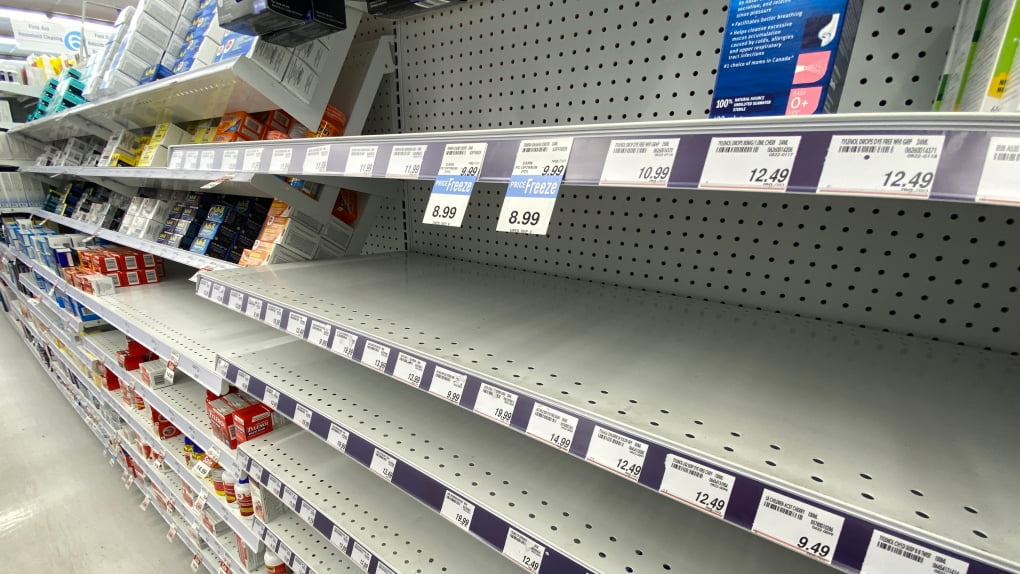From the spring of 2022 to late January of 2023, pharmacies across Canada and the world (notably US, China, Netherlands) have experienced major drug shortages. Neither government nor pharmaceutical companies have explanations for the source of the shortage, leaving people in Canada in the dark about medicine security over the better part of a year. As of January 23, supplies have begun to be restocked.
Between the spring of 2022 and late January 2023, pharmacies across Canada and the world (notably US, China, Netherlands) were experiencing major drug shortages. Neither government nor pharmaceutical companies have had explanations for the source of the shortage, leaving people in Canada in the dark about medicine security over the better part of a year. As of January 23, 2023 supplies were just beginning to be restocked.
Drugs such as ibuprofen (Advil), acetaminophen (Tylenol) and cough syrups have become scarce amidst rising cases of Covid-19, influenza, and respiratory syncytial virus (RSV). For some, the lack of medication has turned home-treatable illnesses into potentially fatal hospitalizations. North Star interviewed Katherine, a pharmacist from Guelph, Ontario, in an attempt to get some answers:
"I feel like my manager doesn't really know anything. Like, they don't tell us anything. They don't tell us when shipments are coming. They don't tell us anything ahead of time. We don't even know why the shortage is happening. Last thing I was told by my manager was they had to do something with packaging or something and that's the last we ever heard."
The Canadian Pharmacist Association insists that there is no disruption to the manufacturing of cough and cold medications, yet Katherine states that supplies were barely trickling into stores: "There was a while there where baby formula wasn't available and it's still really hard to find. Children's Tylenol and Advil is the hardest hit; we get maybe 10 bottles every few weeks if we're lucky." The shortage of adult and children's medicines came on the heels of a baby formula shortage that was facilitated by the exportation of domestically-produced baby formula from a plant in Ontario to China.
On November 14, 2022 Health Canada announced the acquisition of one million bottles of children's acetaminophen, but shelves have only began to be restocked in 2023—in other words, it has taken the government near eight months to address a critical medicine shortage. North Star investigated a number of pharmacies across southern Ontario—Canada's most populous region and most dense consumer market, where one might expect supply to be greatest—finding equally bare shelves in the stores of both pharmacy chain monopolies (Rexall, Shoppers Drug Mart).
Mainstream media outlets and public health organizations have also failed to account for the shortage of broad-spectrum antibiotics. The Guelph pharmacist interviewed by North Star told us that "Amoxicillin was flying off the shelf and I believe Cephalexin was low." Canada's official drug shortage reporting website lists both Cephalexin and Amoxicillin as being in an actual shortage. Both drugs are also the most widely prescribed to children with an infection.
With the shortage only just now being alleviated, public health and pharmaceutical authorities continue to keepthose who cannot afford private healthcare at risk and in the dark. Katherine further disclosed that: "I have a funny feeling that there are a number of people who know what's going on... that someone at a very high level knows what's going on. It's just that information is not trickling down to the rest of the company... I think there should be more transparency."


